RHI inquiry: Emails sent to DUP were 'of type' leaked to media
- Published
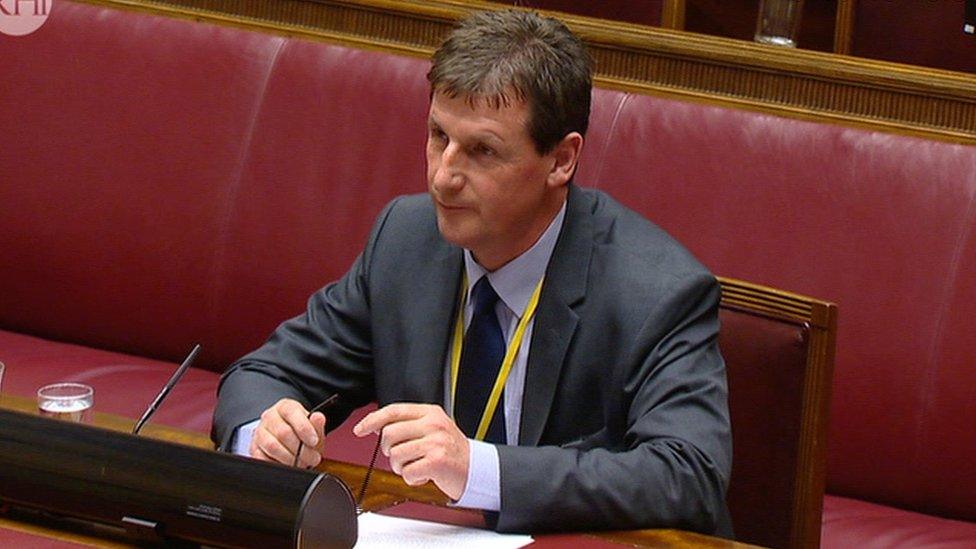
Wesley Aston is the chief executive of the Ulster Farmers' Union
Emails sent by the Ulster Farmers' Union's (UFU) chief executive to a DUP adviser and circulated within the party were of a type leaked to the media at the height of the scandal into NI's flawed green energy scheme.
The evidence was heard at the Renewable Heat Incentive (RHI) inquiry.
The UFU's Wesley Aston gave evidence.
The scheme was set up in 2012 to boost uptake of eco-friendly heat systems, but huge subsidies left taxpayers with a £490m bill.
Its failings led to the establishment of a public inquiry in January 2017.
Mr Aston has been the chief executive of the UFU since 2015, and is a former policy director.
The inquiry heard details of emails Mr Aston forwarded about the scheme to ex-DUP adviser Andrew Crawford in January 2017.
'No reason to hide'
At that time, the debacle over the handling of RHI had exploded into the public domain.
Mr Crawford, a one-time employee of the union was by then a very senior DUP special adviser, who would resign within weeks over claims he was involved in delaying cost controls to the scheme.
The emails showed the level of contact there had been in summer 2015, between another UFU official, Chris Osborne and Stormont civil servants about the plan to cut lucrative RHI subsidies.
Mr Crawford sent the emails to other party advisers, Richard Bullick and John Robinson, saying that Mr Aston was "content for us to use this info".
Mr Aston told the inquiry that the UFU was given "no indication" about what Mr Crawford or the DUP would do with the emails.
He said that because the emails contained information that the union "had no reason to hide"; he was happy to share them and would have done the same had any special adviser asked.
Inquiry counsel Donal Lunny asked if Mr Aston thought the DUP might use the emails to "shift the focus" from Mr Crawford on to the department, but he said it did not occur to him at the time.
Mr Lunny said the emails were of a type subsequently leaked to several media outlets, including the BBC and the News Letter.
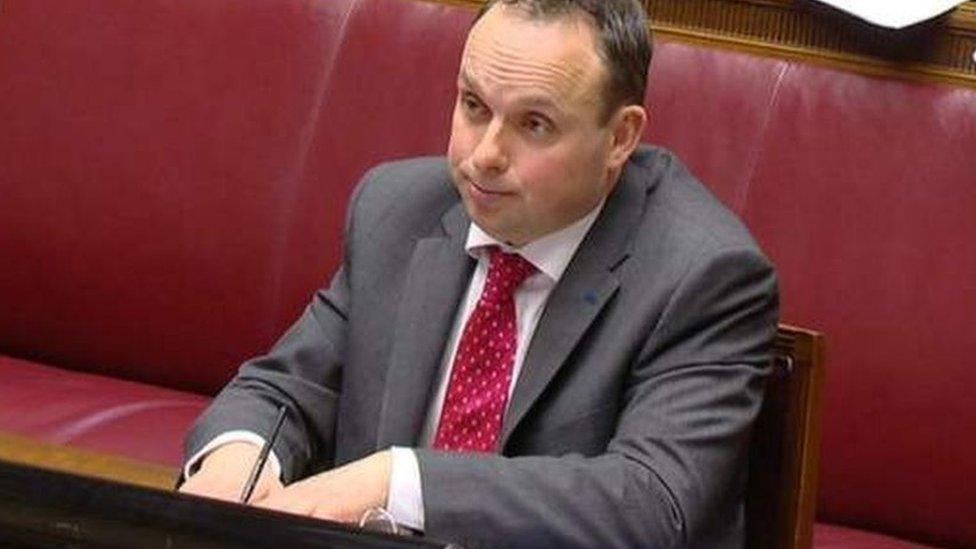
Andrew Crawford told the inquiry that while he resigned as a special adviser to the DUP in 2017, he is still doing part-time advisory work for the party
When the UFU was asked for comment by the News Letter journalist Sam McBride, who was writing a story about the emails, Mr Crawford was copied into its responses.
Mr Aston said he had done this because the DUP adviser "was the subject of the statement".
It was purely out of courtesy and not a case of validating the union's answers with Mr Crawford, he added.
Mr Lunny asked Mr Aston if when he sent on the UFU response to the journalist's questions to Mr Crawford, he sought to establish whether the emails referred to, were in fact the ones he had released to the DUP.
The inquiry counsel suggested that would've been a "natural" thing to have done.
But Mr Aston replied: "It may have been obvious now, but at the time no."
'Tarnishing'
Mr Aston later said he regretted what happened in summer 2015, which saw a spike in applications before cost controls were introduced - but that it was not a consequence of the UFU's making.
It had asked for a delay to cost controls at that time, as "a grace period for those people who had committed to the scheme", he said.
He also told the panel that what should have been a good scheme has ended up "tarnishing" the farming industry.
"It's in all our interests to learn lessons going forward," he added.
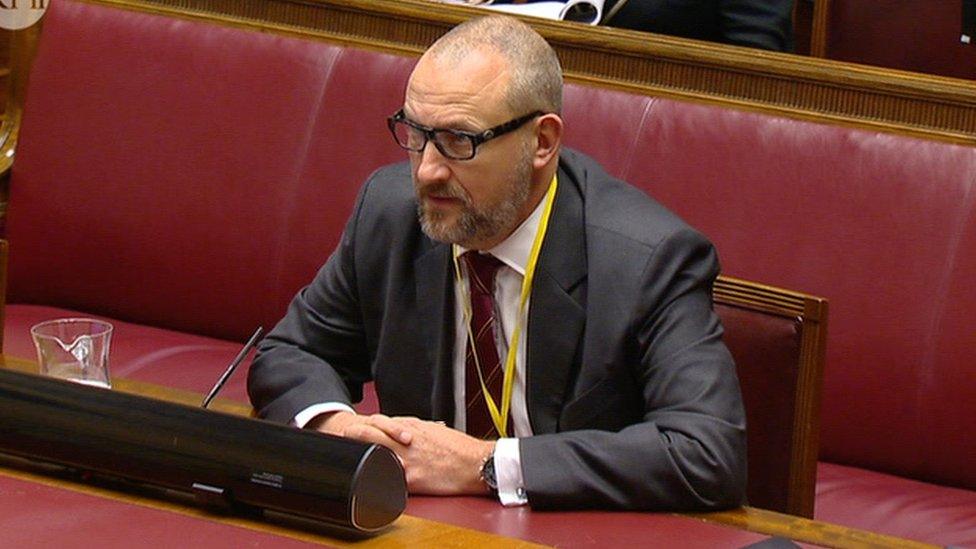
Chris Osborne has worked as a policy officer at the Ulster Famers' Union for the best part of two decades
Earlier on Tuesday, another senior UFU official said farmers were unlikely to contact Northern Ireland's biggest agricultural union with concerns about lucrative payments on the RHI scheme.
Poultry farmers made up the majority of RHI claimants.
Chris Osborne, who is a senior policy officer with responsibility for renewable energy, said he had never been contacted by anyone worried about receiving big payments from the scheme, and their potential to make it unsustainable.
Inquiry chairman Sir Patrick Coghlin said he did not think farmers were "exceptional" in that respect.
Mr Osborne conceded that from an early stage, he understood the RHI tariff was higher than the cost of renewable fuel.
He said he also could see how it would be attractive to some agriculture sectors with a high heat demand, such as dairy, pigs, poultry and mushrooms.
'Alarmed'
He accepted that he also knew that there was no tiering in the Northern Ireland scheme, unlike in the Great Britain scheme which did have tiering - and this made it potentially more lucrative.
Mr Osborne said the UFU had made its 12,000 members aware of the potential benefits of the scheme - but that the absence of tiering had not caused him any alarm.
Mr Lunny asked the official why he had not been alarmed about the scheme's flaw.
He put it to Mr Osborne: "(The flaw) would give rise to the ill you didn't want to arise, which was over-incentivisation, an uncompetitive sector and a renewable heat market that wasn't robust or likely to be prolonged.
"So wouldn't that have been what the industry and the union - if it really was concerned about the things you say it was - ought you not to have been alarmed by what you knew?"
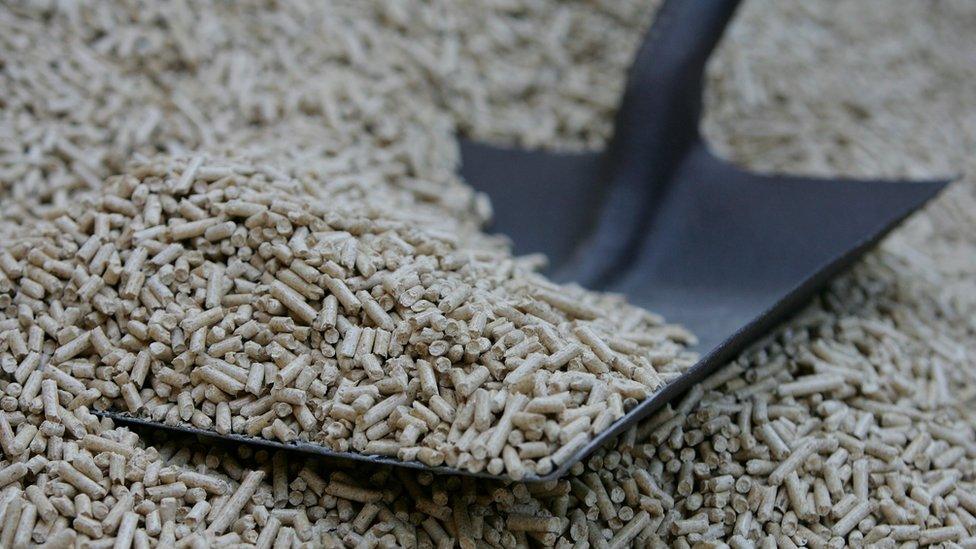
The scheme was set up to encourage businesses to move away from fossil fuels, and provided an incentive for uptake of renewable heat
Mr Osborne said he could not recall exactly why the UFU was not alarmed, but that it was not receiving feedback from the Enterprise Department, which ran the scheme, or from farmer claimants "on the ground" about the high rate of return.
He said there had been a slow uptake of the incentive and it had been under budget for the first couple of years.
He also said he believed the initial £25m budget over four years was finite and "when the money was spent, the budget was gone and that was it".
'Naivety'
Later, Mr Osborne told the inquiry the UFU should have made the Enterprise Department aware of so-called "gaming" of the RHI scheme taking place.
Gaming refers to the running of multiple small boilers, rather than one larger one, to maximise subsidy.
In his witness statement, external, Mr Osborne said the union was told in March 2016 that some claimants were keeping their small boilers running all the time to generate more profit.
However, when asked if the UFU flagged that claim with the Enterprise Department, Mr Osborne said he had not, because the "general assumption" was that Stormont officials would have been aware of it already.
He said with hindsight, he accepted there had been "naivety" on the part of the union to not raise the concerns.
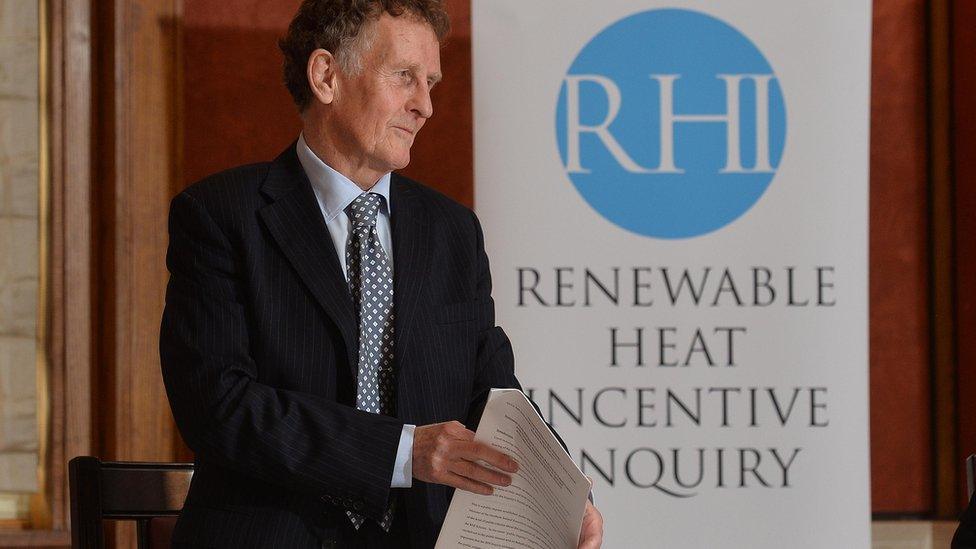
The RHI public inquiry is being chaired by Sir Patrick Coghlin and has heard 104 days of evidence so far
He said by March 2016, the scheme had been closed, but that it would have been useful information for the department.
Inquiry counsel Donal Lunny said the scheme had only been closed to new applicants, and there were still thousands of claimants - some of whom had got in before the restrictions came into effect - who were going to stay on the scheme for a long period of time.
Mr Osborne said quite a few claimants were using the RHI scheme legitimately and were not abusing it.
Mr Lunny replied: "But you were being told of actual overuse."
Mr Osborne again conceded it should have been brought to the department's attention.
'Grace period'
On Tuesday afternoon the inquiry was told the UFU met the Enterprise Department in July 2015 and was told by officials that the scheme was badly over budget, had no "closure button" and no cost controls.
Mr Osborne said he did not recall there being a great sense of "urgency" to what they were telling the UFU, and that they would find the money RHI required.
The UFU had asked the enterprise department for a "grace period" to allow farmers who had already invested money and applied to the scheme to get accredited before the changes came in that autumn.
He also said it was at that meeting that the union warned civil servants about the danger of a spike in applications.
In summer 2015, enterprise officials were working to bring the scheme's overspend under control, but the industry was aware changes were coming and was advising people to get on the initiative before the changes took effect.

Chris Osborne has worked as a policy officer at the Ulster Famers' Union for the best part of two decades
The warning concerned "40 new sheds" in which new RHI-registered heating systems would be fitted were "in the pipeline".
Mr Osborne said he was not sure that the union used the word "spike", but he was confident it would have been clear that there was likely to be an increase in applications before the subsidies were cut.
Mr Osborne was also asked about the union's stance in a recent public consultation about the long-term future of the scheme.
'Voting for Christmas'
The UFU called for a return to the uncapped scheme, which at one point threatened to leave Northern Ireland taxpayers with a bill for almost £500m.
Inquiry panellist Dr Keith MacLean asked why the union had tied itself to an option that went back to "bumper returns".
Mr Osborne said to pick any of the other tariff options presented in the public consultation would have been akin to "turkeys voting for Christmas".
He accepted that the union knew the government was never going to revert to the uncapped scheme.
He said it was, in part, an opening gambit in what was expected to be a future negotiation about tariff levels.
He said the UFU also did not want to compromise a legal challenge to the tariff changes being run by a collective of boiler owners, of which it is a member.
'Wracking my brains'
Later, he also told the inquiry the union was not tipped off by Andrew Crawford that the scheme was closing in February 2016.
But Mr Osborne said he could not remember how the union found out about the emergency shutdown.
"I've been wracking my brains for the last number of weeks and months and indeed years trying to recall but I still can't remember," he said.
The oral evidence sessions are due to finish at the end of October.
- Published10 October 2018
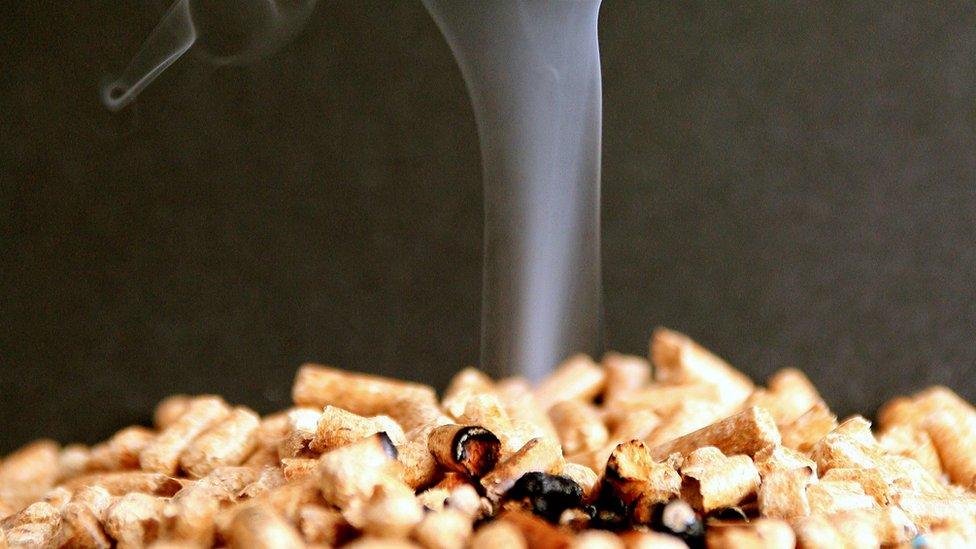
- Published5 September 2018
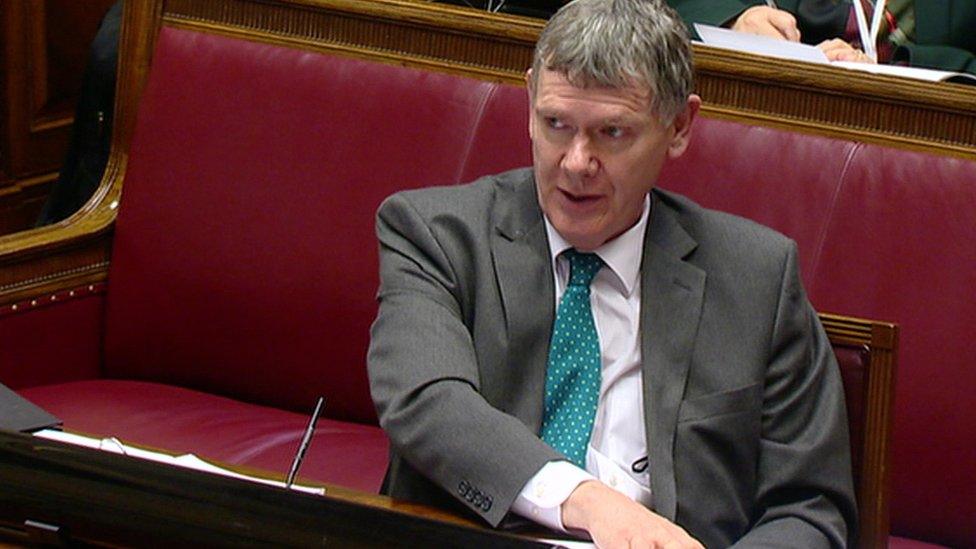
- Published4 September 2018
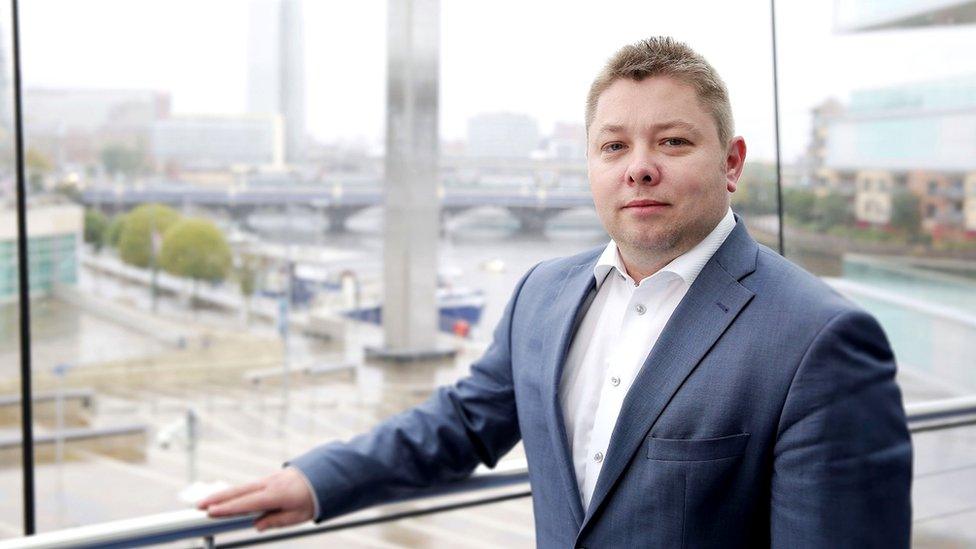
- Published23 October 2019

- Published7 November 2017
